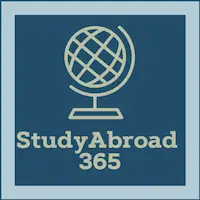
Netherlands is renowned for its windmills, canals and picturesque cities. it also has a rich history of authentic international education and cultural exchange for locals and international students. More than 2,000 Masters degrees taught in the Netherlands are cheap and affordable for locals and international students.
The information written below provides up-to-date information on low tuition or cheapest postgraduate programs in the Netherlands for 2018-19.
We’ve highlighted how Masters degrees work in the Dutch university system and provided a comprehensive overview of the application and admission process for international students.
If you did not know, Dutch universities are super welcoming to international students for centuries now, the more reason we would encourage you to actively consider the Netherlands for your Masters degree program?
We’ve taken a careful look at some of the best reasons to pursue a Masters in Holland and the Netherlands in 2019:
Related Post:How to Study in China in English as an International Student
Innovation and creativity – Dutch scholars and inventors are instrumental for developments as diverse as the first electric battery (the Leyden Jar) which shook the world, the first central banking system, the first diagnostic electrocardiograph and (perhaps less popularly) the first speed camera.
A tested and refined higher education system – Did you know the Netherlands’ oldest universities date back to the sixteenth century?
World Class universities – About 12 Dutch universities are ranked in the world top 200 for 2018.
Large pool of international students – The Netherlands has attracted well over 90,000 students from other countries.
Affordable degree programmes – Postgraduate fees for EU, EEA and Swiss students are determined by the Dutch government (currently €2,060 per year). International students actually pay more.
Academic specialism – Dutch universities offer Masters programs in all major disciplines, but subjects such as Engineering, Economics and Business Management are particularly popular with international postgraduates.
Postgraduate loans – All EU students under 55 can apply for a tuition fee loan for Masters study in the Netherlands.
Related Post: Comprehensive List of Low Tuition Universities in Canada for International Students
Dutch universities
There are three main types of universities in the Netherlands. All offer Masters degrees and teach international students, but their focus is slightly different:
Research universities focus on carrying out new research and scholarship. They typically offer more academic Masters programmes, but professional courses are also available.
Universities of applied science or hogescholen focus on more practical training and education in a range of subjects (including Arts and Humanities as well as Sciences). They typically offer more professional and vocational Masters degrees, with opportunities for internships, placements and other hands-on experience.
Institutes for international education will focus on intercultural education and knowledge exchange. They provide specialised Masters programs in appropriate areas to locals and international students.
Understanding the clear differences between these institutions will help guide your search for a Dutch Masters degree, but worry too much about them. If an institution offers a Masters program you’re interested in, it’s probably the right choice for you!
Fees and funding
The Dutch government routinely decides the standard tuition rate for Masters fees at public institutions. This figure is pegged at €2,060 a year for Dutch, EU, EEA and Swiss students.Please note that some restrictions may apply. Also you will need to be studying at Masters level for the first time (with an exception for programs in Medicine or Education).
Please note that international students from outside the EU and EEA will have to pay more to study a Masters in Holland. The exact tuition fee is pre determined by individual universities, but can be as much as €20,000 a year for some subjects.
Funding
EU students on the other hand are able to apply for tuition fee loans (collegegeldkrediet) as well as Dutch students. These fees can comfortably cover your full Masters fees, but will need to be paid back in full afterwards. All applicants who are under 55 will be able to apply for these loans.
In addition, various scholarships for international students in the Netherlands are also available for locals and international students. These opportunities are maintained by Nuffic (the official Dutch international education portal).
Application process
Please note that the application process for postgraduate program in the Netherlands varies. Some institutions accept applications directly from international students. Others will ask you to use a service called Studielink.
The first step is to find out how your university would like you to apply and what must be included in the application. If your institution accepts direct applications you can begin your application by sending an email enquiry or visiting the course website, using the links in the programme listing. If your university requires international students to pre-register you will need to apply using the Studielink website.
Admissions requirements
Dutch universities will typically expect Masters applicants to possess a Bachelor’s degree (or equivalent in a relevant subject area).
Please note that you will be able to find out more about the specific requirements for your institution by reaching out and connecting with the universities or consulting their listings.
In some cases spots for programs might be limited and admissions will thus be more competitive. This would mean that you have to submit additional documents with your application, such as a personal statement and / or academic transcripts and references.
Applications to research Masters programmes would also require you to state any prospective project goals and demonstrate your readiness for independent work in the field in question. You should also be ready to do the interview (which can sometimes be conducted over the phone or skype for international students).
Related Post:2019 List of Cheapest Universities in Romania for International Students


